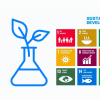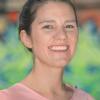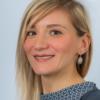
IIASA is co-convening a session during the ninth Science Summit around the 78th United Nations General Assembly (UNGA78) that will take place on 12-29 September 2023, focusing on "Developing Equitable Partnerships for Open Science and Innovation in the era of AI". In addition, IIASA research scholar Dilek Fraisl will participate as a speaker in another session, titled “Citizen Science for Digital Health and AI Research”.
The central theme of the Science Summit at UNGA78 is the role and contribution of science to attaining the United Nations Sustainable Development Goals (SDGs). The objective is to develop and launch science collaborations to demonstrate global science mechanisms and activities to support the attainment of the UN SDGs, Agenda 2030 and Local2030. The meeting will also prepare input for the United Nations Summit of the Future, which will take place at the beginning of UNGA79 on 12 September 2024.
12 September
Developing Equitable Partnerships for Open Science and Innovation in the era of AI
The first virtual session IIASA is convening in partnership with the Belmont Forum will explore the multifaceted aspects of equitable partnerships in Open Science, emphasizing the need for collaboration, inclusivity, and fairness. Panelists from diverse backgrounds, including academia, industry, government, and civil society will engage in a constructive dialogue to identify and share best practices, strategies, and policies for promoting equitable partnerships.
The panelists will draw upon experiences, insights, and initiatives from their respective countries to provide practical recommendations that can be implemented globally. The discussion will highlight the importance of equitable partnerships in Open Science as a means to democratize knowledge, facilitate innovation, and address global challenges collaboratively.
By bringing together one representative from every continent, this panel discussion will foster cross-cultural understanding and collaboration, encouraging attendees to think critically and innovatively about the future of Open Science in the AI era.
Speakers include:
Anna Stewart-Ibarra, Executive Director, Inter-American Institute for Global Change Research (IAI)
Alice Pannier, Head of the Geopolitics of Technology Program, Institut français des relations internationales (IFRI)
Max Henderson, Chief Science Officer, Data Stream Insurance
Thato Morokong, Assistant Director, Africa Multilateral Cooperation and Department of Science and Innovation
Miho Kamei, Policy Researcher, Institute for Global Environmental Strategies and IIASA YSSP alumna
Convenors:
Brian Leung, Belmont Forum
Monika Bauer, IIASA
18 September
Citizen Science for Digital Health and AI Research
The second session will explore how citizen science can contribute to more inclusive and collaborative research for digital health and AI for health. It will also explore the types of infrastructure and technologies needed to create an enabling environment for citizens to participate sustainably. It will focus on strengthening public participation in health research to build stronger partnerships between scientists, citizens and policymakers, which can contribute towards achieving Sustainable Development Goals (SDGs) 3 and 17, ensuring healthy lives and well-being for all. The 2.5-hr session will consist of a keynote, followed by two panel discussions, and a closing remark.
The first panel will explore how to establish citizen science for digital health and AI research. A presentation preceding the panel discussion will showcase a mixed-method study conducted by I-DAIR and partners assessing citizens’ opinions about the application of the citizen science approach and the use of digital enablers. This study was conducted in Bangladesh, Cameroon, India, Indonesia, Kenya, Nepal, The Philippines, Uganda and Zimbabwe.
The second panel will examine the use of existing digital technologies to enable the engagement of citizens. I-DAIR and partners are developing participatory approaches allowing citizens’ active participation to go beyond data collection and extend into modelling and collaborative policy development. The second presentation will showcase the use of participatory modelling approaches in building agent-based models for disease outbreak management in Brazil, Vietnam and Kenya.
Speakers include:
Tariro Kutadza, a Zimbabwean HIV/TB advocate, who is actively working to improve the HIV and AIDS response in Southern Africa
Serge Stinckwich, Head of Research, the United Nations University Institute in Macau
Peiling Yap, Chief Scientist, The International Digital Health and AI Research Collaborative (I-DAIR)
Haidee Bell, Lead, Community Engagement, Wellcome Trust
Ricardo Baptistia Leite, CEO, I-DAIR
Dilek Fraisl, Research Scholar, IIASA
Dinesh Kumar, Professor, Community Medicine, Dr. Rajendra Prasad Government Medical College
Sylvia Muyingo, Biostatistician, the African Population and Health Research center (APHRC)
Oleksandr Zaitsev, Researcher in Computer Science and Modelling, CIRAD
Sameer Pujari, Lead for Ai and Frontier digital ecosystems at WHO
Mamello Thinyane, Optus Chair of Cybersecurity and Data Science and Associate Professor, University of South Australia
Lidia Arthur Brito, ADG for Natural Sciences at UNESCO
Convenors:
Yi-Roe Tan, Research Implementation Lead, I-DAIR
Co-convenor Anna Volbrecht
Upcoming Events
Potsdam Institute for Climate Impact Research (PIK) & Online
German IIASA Networking Event: "Systems analysis for a sustainable and peaceful future"
Online and Austrian Academy of Sciences (Doktor-Ignaz-Seipel-Platz 2, Vienna)
Human Agency to Navigate the Anthropocene
Humboldt University of Berlin

